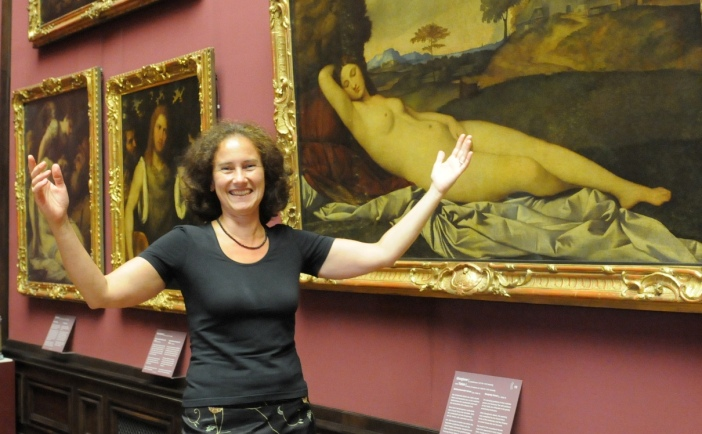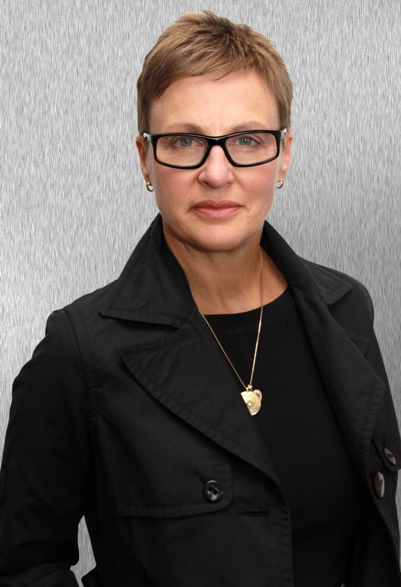
"Curating content to educate and influence the customer" - Interview by John Smibert
A curator is defined as a person "who acquires, cares for, and presents content with the aim of informing and educating". A good curator is a story teller. A classic example is a curator of a museum or art gallery.
 In this discussion Sue Barrett states that the salespeople of the future need to be good curators.
In this discussion Sue Barrett states that the salespeople of the future need to be good curators.
Sue explains that salespeople firstly need to have a deep and wide knowledge relative to their customer's business, and secondly, need to be able to communicate how new information, concepts and ideas relate to them in an easily understood way. In other words "they need to be able to communicate the context of that content relative to the customer's current business state and their wider market".
Sue says good sales curators build case studies, build stories, source relevant information, are curious and interested. They draw on this content to share relevant stories with a customer which will then lead to a narrative that educates and creates value for them.
This is not intuitively easy for many salespeople so Sue goes on to explain some simple methods salespeople can use to develop this capability to be a good curator
See the full discussion below where Sue explains how this can be achieved.
Sue is an authoritative thought leader and an accomplished author on the selling profession. She's also founder and CEO of Barrett and SalesEssentials.com.
Interview
John: I'm delighted to have Sue Barrett with me again - welcome back, Sue!
Sue: Thank you, John!
John: Sue, we talked about the competitor zero situation, lack of decisions, etc. last time, and I know you talk about, as salespeople, we need to be curators more than we have in the past, and I think curation will help that competitor zero situation. What do you mean by a curator?
Sue: I'm referring to a concept that has been well-known in the areas of history museums and art galleries and those sorts of areas, even in science. There are people who have subject matter expertise across a really deep and vast knowledge of an area; they also are very good at organising that information in easy ways for people to get access to. If you ever go to a great art gallery exhibition or somewhere like that, you'll actually find that they've been able to narrate a story or take you through the information in a way that makes sense to us, that allows us to actually follow a journey. And I think good salespeople, when they come in with the expertise in their area are in fact like a good curator would be in a museum.
John: And you're not talking about them creating all the knowledge and information about their product and their company, you're talking about curating all the information about the area that the customer operates in, their business and their business environment and so on, aren't you?
Sue: Yes. Because their ability to be able to understand not only what they know in-depth but what relates to other people, the context of that in relation to as a salesperson - "What is this company trying to achieve? What's their market? What's it like at the moment?" and so on - and then my job is to go through the information that I have and curate the right pieces that are going to be relevant to them. Rather than just showing up and throwing up lots of information in front of them, I'm going to curate that information so the narrative is actually going to flow really well for those people in that situation.
John: That's a really good point. Of course I sit here and think for a lot of salespeople that's a challenge. They're probably sitting there, thinking, "How do I become a good curator, to be able to present those simple stories, etc., to my target market with authority and so on?" How would you recommend people develop that capability?
Sue: You have to study your subject area in context of how it affects all sorts of other areas.
John: Again, not your product but the customer's environment.
Sue: All of that, how it all relates. What do we actually do for people? How does it affect what it is that they're doing? Build out case studies, build out stories, get information that comes out of those sort of systems that you're operating in, and just be curious and interested, and when you are, then you can relate stories to other people and you can actually have a narrative that's relevant. You might have a library of stories, for example; you're not going to shop around in the same story all the time.
John: Of course.
Sue: And you may not be able to get all of that yourself, so open your hearts and your mind and listen to other people, other people in your business. What stories do they have? Let's collect these stories, let's actually collate them and have them in a library in our own business that we can pluck out. Have them videoed like we're videoing here, we're creating a library of stories and information for people to share, and then that allows people to be able to go out there and start to curate better.
John: Okay. And once you've got all the stories, then you start researching and understanding where a client's currently at, suddenly those stories will click and you'll be able to put two and two together and bring insight. A lot of people talk about insight selling and challenger selling, that's the basis of being able to do that I assume.
Sue: Yes. I mean, you are bringing insight, you are bringing knowledge, you are bringing different perspectives, you are helping people look at those things, you may be challenging them to look at other opportunities and other ideas. I would do that in a way that's constructive and not adversarial, but it's a way of actually engaging. But you cannot do any of that until you understand what that person's trying to achieve, or that company, whomever.
John: And to understand that you need to have the skill and capability and stories behind you to really be able to curate and come up with a simple, straightforward, understandable story.
Sue: Let's put it this way, John. The challenge of course always is that we have to start somewhere, so start curating from day one. You may not be great at it at the beginning because you don't have enough stories to share, but start gathering and organising that information so that as you evolve... Because you can't wait to have it all, otherwise you won't be in business. So, let's just start being a curator from day one, and when you look back you'll find very quickly that you've become a better curator.
John: I've worked with some great salespeople that are very good at that sort of thing, and the one thing one of them particularly taught me is that they had lots of customers, and every customer had to address challenges with their help, whether it was use of their product or other ways, but they understood that they had business challenges and they addressed those. Every one of those is a story!
Sue: Of course.
John: And it's very easy if you're a successful salesperson, you've got lots of successful customers out there, driving change in their business, then everyone's a story.
Sue: Yes. If you're interested and curious in other people and you've got a good memory for stories and information, you'll become a very good curator. If you're just there trying to flog what you've got to someone and sort of sell at them, you won't pass muster as a curator.
John: I think that's a great way to finish this discussion - I love your advice. For all the audience out there, let's be curators, let's learn how to tell stories and accumulate those stories so we're ready to tell them.
Sue: Yes.
John: Thanks, Sue!
Sue: Pleasure!
****************
Past interviews with Sue Barrett:
***************
Your Invitation: I invite you to join the Strategic Selling group on LinkedIn where you can experience informative discussions with your peers and sales thought leaders on subjects like the one we have discussed here.
Also feel free to subscribe to the Strategic Selling YouTube Channel here where you can select from over 100 video interviews with sales masterminds on a wide variety of topics relevant to sales professionals and sales management.
Please Share: If you valued this article, please share via your Twitter, LinkedIn, Google+ and Facebook social media platforms. I encourage you to join the conversation or ask questions. So feel free to add a comment on this post - I promise to respond. Please follow my LinkedIn post page and follow me here on the Strategic Selling Group. I also recommend you follow my associates in the SMA Sales Masterminds.
Your invitation to subscribe to this blog: Please SUBSCRIBE HERE